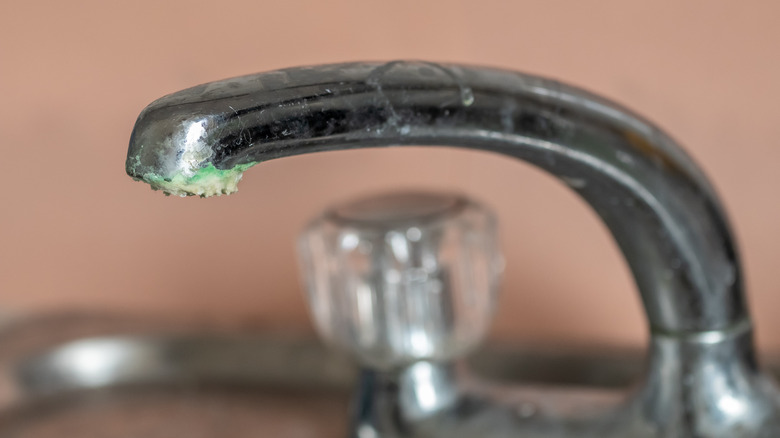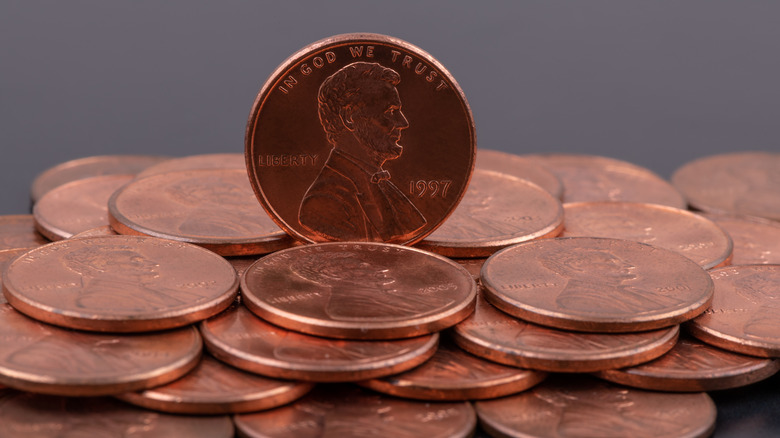The Genius Coin Hack That Can Help Banish Stubborn Limescale Buildup
Most people will have encountered limescale buildup in their bathroom or kitchen fixtures at some point. While it is an eyesore at small scales, limescale (also known as calcium carbonate) deposits that continue to accumulate at rapid rates can make your faucets less efficient, restricting the free flow of water and causing hard water horrors in your home (they also look gross). There are many known methods to dissolve visible mineral buildup, but a lesser-known limescale-removing hack will send you on a hunt for a copper-coated penny.
Once composed of nearly 100% copper, today's pennies are nearly all zinc and are coated with copper plating. The copper covering your 1-cent coin is the star of this cleaning hack, as it causes a chemical reaction that will quickly break down the buildup you've been stuck with. Wet your penny with some tap water and begin to gently scrape away at the mineral deposits. You should notice that it begins to quickly chip off; you may need to rinse the portion you're working on a few times in order to more easily see your work. Keep at it until your faucet, bathtub, or shower door is free from mineral deposits, then pat yourself on the back: you saved significant money by addressing this problem for literally one cent (a professional water spot removal job could cost you as much as $40 to $65 per hour).
Tips for success
If you are hoping to get the best results for this hack, remember to arm yourself with the right coin: it's the copper found in pennies that causes the limescale-dissolving results more than it is the scraping motion. The penny trick is an excellent tool to have in your back pocket, but depending on how bad the mineral deposits are, you may or may not need to resort to digging through your wallet to clean them. More conventional cleaning methods, such as using white vinegar to break down buildup or this citrus hack to remove hard water from your faucet, could work for a scant amount of deposits.
When tackling limescale buildup on porcelain, ceramic, or metal, remember to scrape carefully. Mineral deposits can be very hard and difficult to dislodge — the last thing you want to do is leave a scratch in place of the limescale. Once the deposits are all scraped away, there may still be stains remaining on your metal fixtures. Try using baking soda and vinegar to clean the mineral stains from your sink or other surface. Finally, to avoid losing your penny down the drain (which would cause an entirely different problem), cover it with a drain plug or washcloth before beginning this cleaning task.

